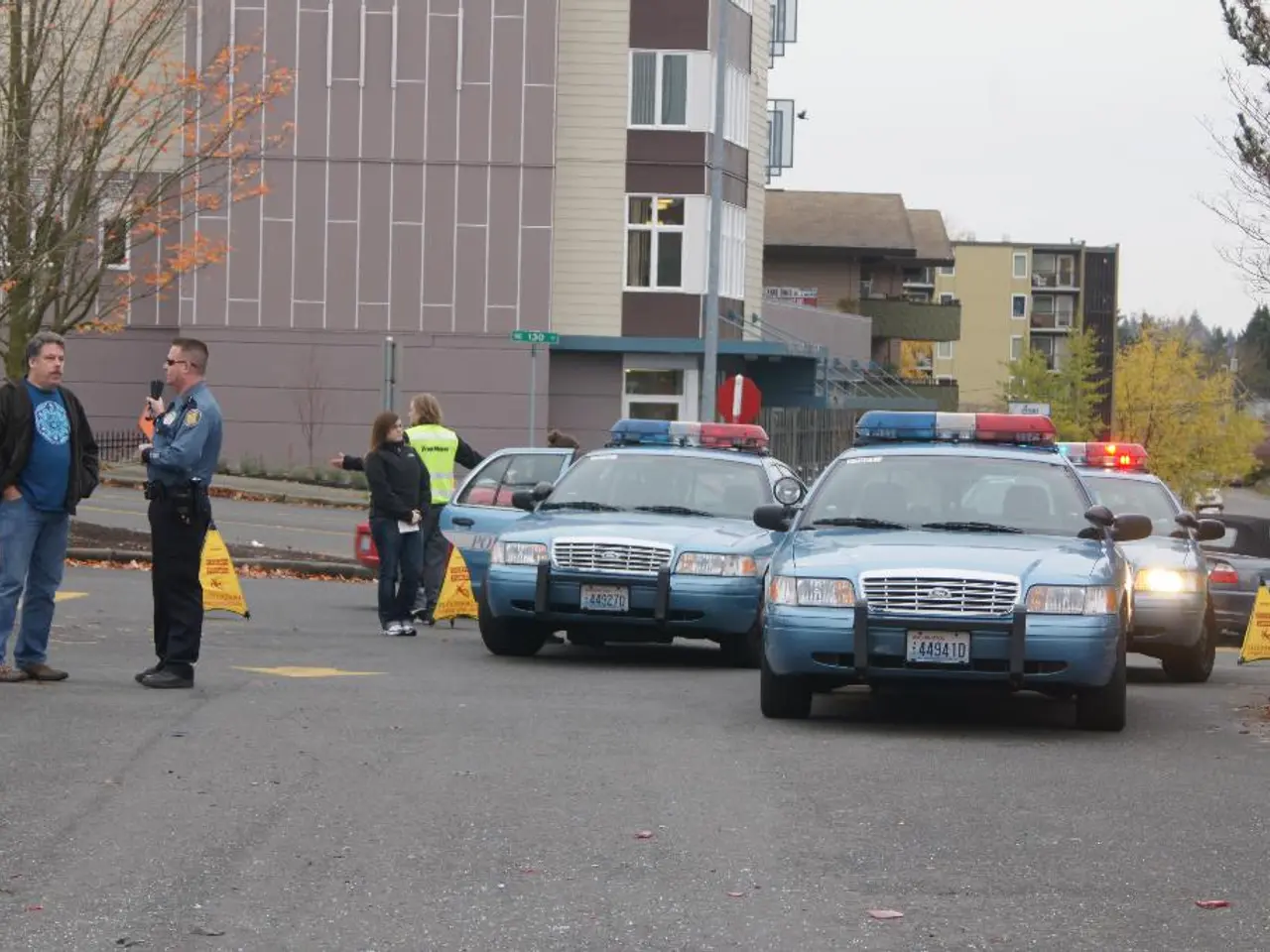Renamed Location Serves as New Base for National Security Council
Germany Establishes National Security Council for Enhanced Security Strategy
Germany is set to strengthen its security strategy with the establishment of a National Security Council (NSC), a cross-ministerial decision-making platform chaired by the Chancellor, Friedrich Merz (CDU). The council, scheduled to hold its first meeting on August 27 at the Ministry of Defense in Berlin, aims to integrate security information across domestic, foreign, economic, and digital domains [1][2][4].
Composition of the NSC
The NSC will be chaired by the German Chancellor and include key ministers, such as finance, foreign affairs, and defense. Additionally, the council will involve security agency officials, scientific experts, representatives from federal states, allied nations, the EU, and NATO. To support its operations, the council will create around 13 new posts dedicated to security policy development, strategic planning, and joint situation assessment [1][3][4].
Role and Impact on Security Strategy
The NSC is designed to enable broader strategic coordination and crisis response capabilities within the federal government. By consolidating information from various domains, the council aims to facilitate well-informed, integrated decision-making, increasing the coherence and agility of Germany’s security policy. The council will also support strategic forecasting to detect medium- and long-term threats [1][2][4].
The council’s functions will mirror those of councils in countries like the US and UK, addressing a wide spectrum of security issues ranging from internal security challenges to digital and economic threats. The council’s establishment coincides with other security steps such as forming a national crisis team and situation center within the Federal Chancellery [1][2][4].
This institutional reform reflects Germany’s response to evolving security challenges, including a perceived growing threat from Russia, and coincides with plans to strengthen the Bundeswehr and increase defense spending [3][5]. The NSC is intended to overcome "silo thinking" in the federal government and security authorities, becoming the "hub" where security is thought of in a networked and integrated way.
Council's Operations
The NSC will convene during crises and develop strategies for threat scenarios. A staff unit will be set up in the Federal Chancellery for the NSC, along with 13 new positions. The rules of procedure for the NSC will be adopted at the next meeting of the federal cabinet on August 27. The NSC can make final decisions, unless a decision by the federal government is required by the Basic Law or a federal law.
There are plans for a national crisis staff and a national situation center in the Federal Chancellery. Other government members can be involved on an ad-hoc basis. The NSC's role includes providing strategic foresight and planning, identifying threat scenarios, developing response options, and making preparations. This includes updating the National Security Strategy.
Unlike the US, the NSC will not have a national security advisor. The NSC is intended to replace the Bundessicherheitsrat and the security cabinet. The pooling of information on internal, external, digital, and economic security will enable the NSC to form a comprehensive understanding of potential threats and respond effectively.
In summary, the NSC represents a significant restructuring intended to enhance Germany’s strategic coordination, crisis readiness, and comprehensive security approach across government ministries and at the federal level, thereby impacting the country’s security strategy by making it more unified, anticipatory, and resilient [1][4][5].
The National Security Council (NSC), under the chair of German Chancellor Friedrich Merz, will incorporate politics by involving key ministers, security agency officials, representatives from allied nations, the EU, and NATO in delivering a general-news worthy security strategy [1][3][4]. As part of its operations, the NSC aims to support strategic planning and joint situation assessment to improve Germany's security strategy, focusing on anticipatory and resilient approaches [1][4][5].








